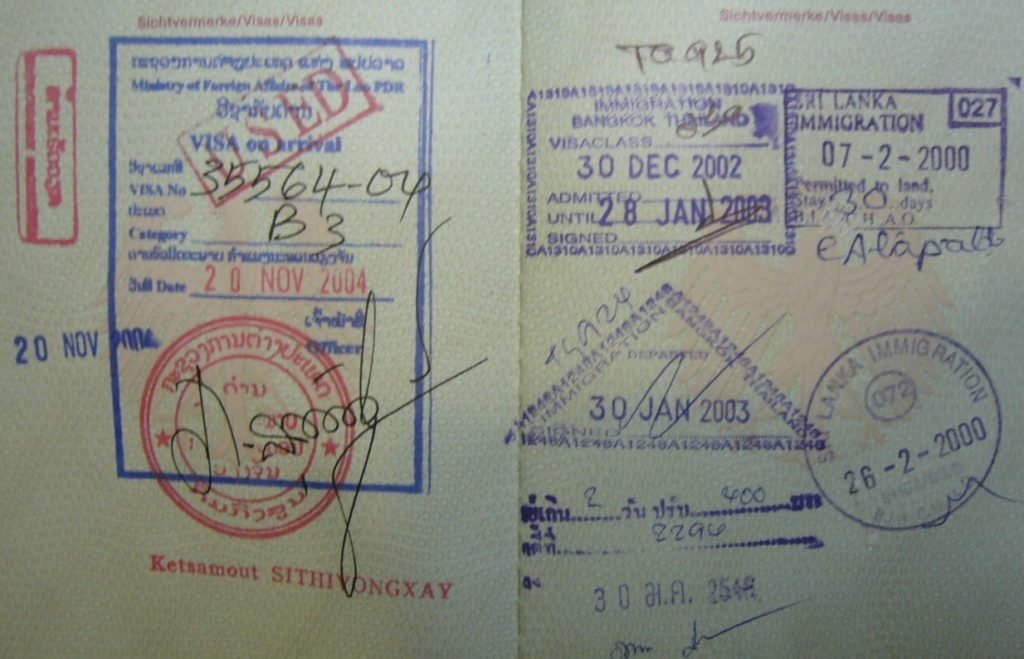Essentials for Every International Student

Arriving in the UK for a year abroad – especially for a full 3-year degree-level course – can be daunting. From the rainy weather to the cultural differences, it can be hard to feel as if you fit in – especially when you have a demanding university schedule.
However, sorting out the basics of your time abroad as soon as you get here will let you focus on the more important things…
Like trying not to get lost, making friends and having fun! Here are the essentials every international student needs to do:
1) Get your visas
EU or EEA nationals do not need a visa to study in the UK. All you’ll need is your passport to get into the country, although you should make sure that this is up-to-date and does not expire for the duration of your stay. This may change in the event of Brexit, so you should check for updated information in March.
If you are not an EU citizen and intend to be studying for less than six months, you should apply for a short-term student visa. However, this does not let you hold a part-time job. So, if you need to work to top up your funding, you will have to apply for a Tier 4 visa.
If you are staying in the UK for longer than six months, you should apply for a Tier 4 visa. This will allow you to study and work in the UK. To apply, you will need your CAS registration number from your chosen university, proof of your financial ability to pay for your tuition fees and living costs and at least have a basic understanding of the English language (if you’re managing to read this article easily or relatively easily, you’ll be fine).
2) Check your finances
You should plan how you’re going to fund yourself throughout your stay. If you’re an EU national, you can currently apply for UK student finance to help pay for your tuition fees. Again, in the event of Brexit, this might not necessarily still be the case.
However, if you live outside the EU, you will have to pay the full fees yourself. These can be greatly higher than the costs for a UK citizen and can range from £10,000 to £38,000.
You should also plan your finances regarding living costs. This will help you decide what type of visa you will need. For instance, are you intending on working part-time to cover your costs, will you take out a loan or get financial help from a relative?
3) Set up your bank accounts
One of the real essentials for every international student is opening a UK bank account as soon as possible. This will make it easier for you to pay rent and avoid charges when paying for items with your home bank account.
Some banks in other countries have branches in the UK. If your bank does not, you should set up a student bank account as they allow you to have a larger overdraft and a higher interest rate.
To set up a bank account, you will need to visit the bank in person and provide:
- Your passport and visa
- Proof of both your home address and UK address
- Proof of income
- Proof of your student status
4) Organise your accommodation
Accommodation can be hard to find as an international student. You won’t be able to visit rented accommodation before you sign a contract either. However, the university normally has housing services that can help you to find the best accommodation option for you.
If you want to live in halls, universities normally have online applications for you to fill out. Once completed, these applications will allocate rooms randomly. Some universities may also have special accommodation for international students, meaning that you can meet students in a similar situation to yourself.
5) Consider translation services
If you are struggling to understand your university work and this is stopping you from getting the grades that you deserve, you can employ translation services to help you achieve the best grades possible.
For instance, companies like Asian Absolute provide everything from support for European languages to Arabic languages. They’re not going to be part of your student essentials pack if you have the necessary language skills already. But if you need help understanding and comprehending your assignments in your first language, these can let you keep up with your peers and showcase your work to the best of your ability until you do.
6) Make inroads on your social Life
Top of most peoples’ uni essentials list will be making the sort of friends who will be with you for life.
If you’re worried you might struggle to make friends or find other international students, social media can be a great way to combat loneliness. You can also reach out to people in a similar situation to you. There are many Facebook groups for international students. Most individual institutions usually host university-specific Facebook groups for international students too.
If you want some face-to-face interaction, universities have hundreds of different societies, many of which are societies for international students from specific countries. Most campuses will also hold events for international students to meet like-minded people. These are both great places to start
Don’t worry. You’ll soon find the right people for you!
The ideal university packing list for international students
Never forget that despite the challenges of being an international student, one of the biggest essentials you need to carry with you is your own positive attitude. You’ve already made a brave decision. You’re venturing far outside of your comfort zone – much further than most people will ever go.
With your own positivity and this list on your side, your first months as a student will fly past. Leaving you to focus on partying, going to events and activities and – occasionally – even attending your lectures.
Category: Travel






